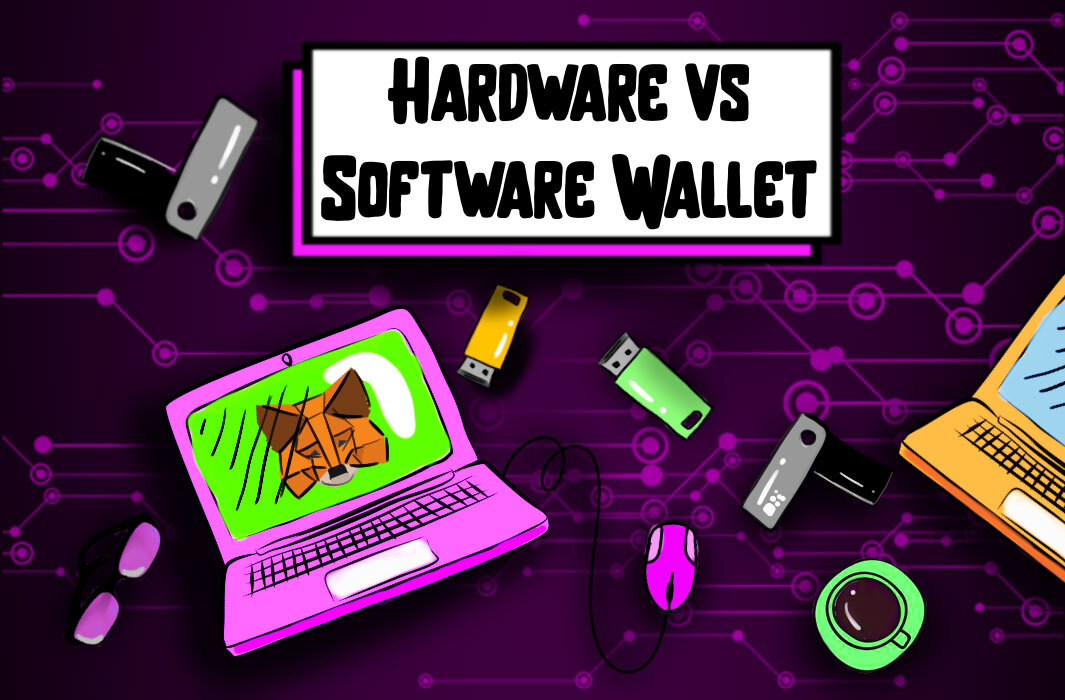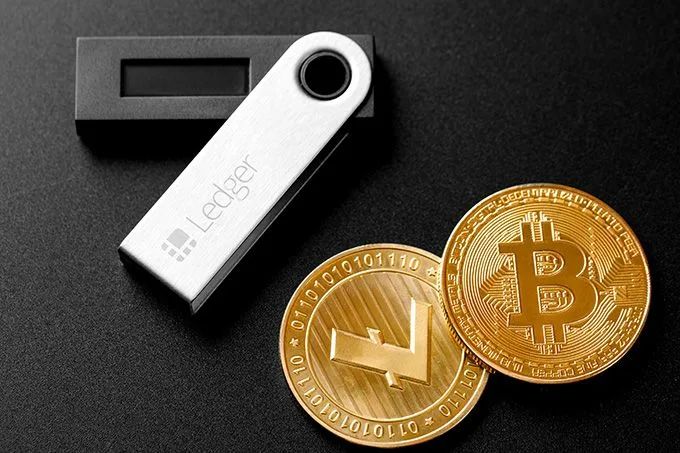Understanding the Differences Between Hardware and Software Wallets

As the popularity of virtual currencies continues to rise, the importance of safeguarding these digital assets cannot be overstated. With various methods available for protecting one’s investments, it becomes crucial to discern which modalities offer the most robust defenses against potential risks. Investors are often faced with a dilemma: should they rely on tangible tools or opt for more flexible digital alternatives?
In this exploration, we aim to delve into the merits and drawbacks of each option, providing insights that can aid individuals in making informed decisions. By examining relevant features, usability, and risk factors, we will highlight how each approach caters to diverse requirements. Navigating this landscape requires a careful assessment of personal priorities and a thorough understanding of available solutions.
Ultimately, security is paramount in the world of virtual currency, and selecting the right means to protect assets is essential. Each method presents unique advantages and disadvantages, shaping the experience of managing digital holdings. This article seeks to illuminate these aspects, equipping readers with the knowledge to enhance their asset protection strategies.
Overview of Cryptocurrency Wallet Types
In the realm of digital currencies, various tools exist to manage and safeguard these assets. Each type offers unique features and functionalities catering to different needs and preferences of users. Understanding these distinctions can significantly enhance one’s approach to asset management and security.

Categories of Digital Currency Tools
The tools designed for handling digital currencies can be broadly categorized based on their accessibility, connectivity, and method of storing information. Some provide easy access to funds while sacrificing certain layers of security, whereas others prioritize protection but may be less convenient to use. Below is a comparison of several types:
| Type | Description | Security Level | Convenience |
|---|---|---|---|
| Cold Storage | Devices or methods that are not connected to the internet, ensuring high protection against online threats. | High | Low |
| Online Solutions | Platforms accessible via the internet that allow for quick transactions but may be vulnerable to hacks. | Medium | High |
| Mobile Apps | Applications on smartphones that facilitate access and transactions on the go with moderate security measures. | Medium | High |
| Desktop Programs | Software installed on personal computers offering better security features compared to online solutions. | Medium to High | Medium |
Factors to Consider
When selecting the appropriate tool for managing digital currencies, it is essential to weigh factors such as ease of use, level of security provided, and the specific functionalities required. By understanding these various types, individuals can make informed decisions to protect their investments effectively.
What Are Hardware Wallets?
In the realm of digital assets, certain tools provide enhanced protection against unauthorized access and theft. These devices are specifically designed to securely store private keys, ensuring that the user’s private information remains safe from potential threats and vulnerabilities present in online environments.
Devices of this nature are typically portable and utilize advanced cryptographic techniques to safeguard sensitive data. By keeping private keys offline, they significantly reduce the risk of exposure to malicious attacks that can occur through online channels.
Furthermore, these tools often feature a user-friendly interface, allowing individuals to easily manage their digital holdings while maintaining a high level of security. Many also include backup options to ensure that users can recover their information in case of loss or damage.
Understanding Software Wallets Explained
Digital solutions for managing virtual currencies provide users with an accessible and convenient way to handle their assets. These applications can be easily installed on various devices, allowing individuals to send, receive, and store their holdings seamlessly. This flexibility attracts many enthusiasts and investors who appreciate the balance between usability and functionality.
Types of Digital Solutions
There are various categories of these applications, each catering to different needs and preferences. Mobile applications are designed for portability, offering quick access on smartphones and tablets. On the other hand, desktop options allow for a more robust user experience on personal computers. Each type has its advantages, which can significantly influence a user’s decision on which application to choose.

Key Features to Consider
When selecting an appropriate digital solution, it is crucial to evaluate several factors. User interface plays a significant role in ensuring ease of use, especially for beginners. Additionally, security measures are vital; encryption and backup options can provide peace of mind. Furthermore, regular updates and active community support can also enhance the overall experience and safety of managing virtual currencies.
Key Advantages of Using Hardware Solutions
When it comes to safeguarding digital assets, opting for a physical device presents numerous benefits that enhance overall protection. These tangible solutions offer a robust layer of defense against various threats, ensuring that sensitive information remains secure even in the face of emerging risks.
Unmatched Security Features
Physical isolation is one of the primary advantages of these devices. By storing private keys offline, they minimize exposure to online hacking attempts and malware attacks. This separation creates a secure environment, substantially lowering the likelihood of unauthorized access.
User-Friendly Experience
Many solutions are designed with ease of use in mind, often featuring intuitive interfaces that simplify the management of digital assets. Regardless of technical expertise, users can seamlessly navigate their funds while maintaining high levels of security.
Benefits of Software Wallets for Users
Digital solutions offer a range of advantages that cater to the needs of contemporary investors and enthusiasts. With their user-friendly nature and adaptability, these tools provide convenient access to funds and various features that enhance the overall experience in the vast realm of virtual currencies.
Accessibility and Convenience
One of the primary benefits of these tools is their accessibility. Users can manage their assets from multiple devices, including smartphones, tablets, and computers. This flexibility allows individuals to perform transactions anytime, anywhere, ensuring they have real-time control over their investments. Moreover, the ease of installation means that even those new to the digital economy can quickly get started without extensive technical knowledge.
Features and Integration
Another advantage lies in the myriad of features that are often integrated into these solutions. Many provide advanced functionalities, such as transaction tracking, portfolio management, and notifications for market changes. In addition, compatibility with various platforms and exchanges enables users to smoothly engage in trading activities, enhancing their overall experience within the digital asset ecosystem. Thus, these tools serve not only as a means of storing value but also as comprehensive platforms for managing investments efficiently.
Security Comparisons: Hardware vs Software
In the realm of digital asset management, the methods of safeguarding one’s holdings can greatly influence the level of protection against various threats. Each approach offers unique advantages and drawbacks, making it essential to analyze their security features, risks, and user experiences. This comparison seeks to shed light on the intricacies involved in choosing a secure method for asset management in a digital environment.
Physical Security vs Digital Vulnerabilities
Traditional devices designed for secure storage provide a substantial defense against online attacks. They are often immune to malware and phishing attempts since they operate offline. Conversely, applications that exist in digital form are susceptible to cyber threats, leaving users potentially exposed to hacking and unauthorized access. Here, the debate revolves around the level of exposure to vulnerabilities inherent in each storage option.
User Experience and Backup Solutions
The convenience of accessing and managing digital holdings is another critical factor. While offline solutions might offer enhanced protection, they may require a more complex setup and careful handling. Furthermore, the risk of loss due to physical damage can be an issue. In contrast, digital solutions allow for quick access and easy recovery, yet this ease can come at the cost of higher exposure to digital threats. Assessing the balance between safety and accessibility is paramount in this decision-making process.
Choosing the Right Wallet for You
When navigating the realm of digital currency storage, it becomes essential to identify the ideal solution tailored to your personal needs. With various options available, each offers distinct features and levels of protection, making it crucial to assess your individual preferences, usage habits, and risk tolerance.
First and foremost, consider how frequently you intend to access your assets. If you engage in regular transactions and require quick accessibility, a more flexible solution may suit you better. Conversely, if your strategy leans towards long-term holding with minimal transactions, opting for a more secure alternative could enhance your protection against potential threats.
Moreover, evaluate your comfort level with technology. Some individuals prefer a hands-on approach, while others may favor simplicity. Your technical expertise can greatly influence which type of storage method you find manageable and user-friendly, helping to ensure a positive experience.

Ultimately, prioritizing security is paramount in your decision-making process. Assess the vulnerabilities associated with each option and choose one that aligns with your risk appetite. By carefully weighing these factors, you can find a storage solution that adequately safeguards your investments while catering to your unique lifestyle.
Q&A: Hardware vs software wallets
What is the main difference between hardware wallets and software wallets?
Hardware wallets are physical devices used to store cryptocurrencies offline, providing a higher level of security against online threats such as hacking. Software wallets, on the other hand, are applications or programs installed on computers or mobile devices, allowing users to access their cryptocurrencies online. While hardware wallets are considered more secure due to their offline nature, software wallets offer convenience and easier access to funds but come with the risk of being compromised, especially when connected to the internet.
Are hardware wallets worth the investment compared to software wallets?
Yes, hardware wallets are generally worth the investment if you are serious about securing your cryptocurrencies. They provide a level of security that software wallets cannot guarantee, especially for large amounts of cryptocurrency. Hardware wallets store private keys offline and require physical access to the device to make transactions, making them much harder to hack. If you frequently trade or use small amounts of crypto, a software wallet may suffice, but for long-term storage and larger investments, a hardware wallet is advisable for enhanced security.
Can I use both hardware and software wallets simultaneously?
Absolutely! Many crypto users choose to use both types of wallets to balance security and convenience. A common strategy is to store the bulk of your cryptocurrencies in a hardware wallet for long-term safety while keeping a smaller amount in a software wallet for everyday transactions. This way, you can enjoy the ease of accessing your funds quickly without compromising the security of your larger holdings. Just ensure that when you do transfer funds between wallets, you’re using secure methods to protect against phishing and other risks.
What should I consider when choosing a hardware or software wallet?
When choosing between a hardware or software wallet, consider the following factors: 1) Security Features: Look for wallets that offer strong encryption, two-factor authentication, and support for multiple cryptocurrencies. 2) User Experience: A wallet should be user-friendly and have a simple interface, especially if you are new to crypto. 3) Backup and Recovery Options: Ensure the wallet allows you to back up your data and recover access if your device fails. 4) Cost: Hardware wallets come with a higher initial cost, whereas software wallets are often free. Assess your budget and security needs. 5) Community and Support: Research user reviews and customer support for the wallet to ensure reliability and assistance if issues arise.
How can I ensure my software wallet is secure?
To ensure the security of your software wallet, follow these best practices: 1) Choose Reputable Wallets: Only download software wallets from trusted sources or official websites. 2) Enable Two-Factor Authentication (2FA): This adds an extra layer of security by requiring a second form of verification. 3) Keep Software Updated: Regular updates often include security patches that address vulnerabilities. 4) Use Strong Passwords: Create complex passwords that include various characters, and consider using a password manager. 5) Be Wary of Phishing Attempts: Always double-check URLs and be cautious of unsolicited messages or links. 6) Backup Your Wallet: Regularly back up your wallet and store recovery phrases securely, away from your device. Following these steps can help mitigate risks associated with using a software wallet.
What are the main differences between hardware wallets and software wallets for storing cryptocurrencies?
Hardware wallets and software wallets serve the same purpose of storing cryptocurrencies but differ significantly in their security and usability. Hardware wallets are physical devices that store your private keys offline, making them less vulnerable to hacking, malware, and online threats. They require user interaction to confirm transactions, adding an extra layer of security. On the other hand, software wallets are applications that can be installed on devices such as smartphones or computers. They are more convenient for frequent transactions but are more susceptible to cyber-attacks since they are connected to the internet. In summary, if security is your top priority, a hardware wallet is generally the better choice; for ease of use and quick access, a software wallet may be more suitable.
How do I choose the best wallet for my cryptocurrency, hardware or software?
Choosing the best wallet for your cryptocurrency depends on your specific needs, usage habits, and security preferences. If you plan to hold a significant amount of cryptocurrency for the long term, a hardware wallet is advisable due to its superior security features and offline storage. Popular options include Ledger and Trezor. Conversely, if you make frequent transactions or need quick access to your funds for trading purposes, a software wallet would be more convenient. Mobile and desktop wallets like Exodus or Trust Wallet offer user-friendly interfaces and easy accessibility. Ultimately, you may choose to use both types: a hardware wallet for long-term storage and a software wallet for daily transactions, ensuring you balance security and convenience effectively.
What is a crypto wallet, and how does it work?
A crypto wallet is a digital tool designed to store your crypto assets and manage private keys, which are essential for accessing your crypto. Wallets work by allowing users to send, receive, and store cryptocurrency securely. There are two main types of crypto wallets: hot wallets, which are connected to the internet, and cold wallets, which are offline, offering greater security against cyber threats.
What are the pros and cons of using a hardware wallet vs a software wallet?
A hardware wallet is a physical device that stores your private keys offline, making it more secure than software wallets against online attacks. However, hardware wallets can be expensive and less convenient for frequent crypto transactions. In contrast, software wallets are free and easy to use but are less secure than hardware wallets because they are connected to the internet, increasing the risk of hacking.
How do non-custodial wallets differ from custodial wallets?
Non-custodial wallets provide users with full control over their private keys, meaning they have direct access to their crypto assets without relying on third parties. Custodial wallets, often provided by crypto exchanges, store your private keys on your behalf, making them more convenient but less secure. Choosing a crypto wallet depends on your preference for control and security.
What are the security aspects of hardware and software wallets?
Hardware wallets store your private keys offline, offering protection from online threats and ensuring secure crypto storage. They are considered more secure than software wallets, which are known for their convenience but are vulnerable to cyberattacks since they are connected to the internet. Understanding the security aspects of hardware and software wallets is crucial when choosing a crypto wallet.
Why might someone choose a mobile wallet or web wallet over a hardware wallet?
Mobile wallets and web wallets are often chosen for their convenience and ease of access, allowing users to manage their crypto assets anytime, anywhere. They are ideal for frequent crypto transactions and offer quick access to your crypto through a wallet app. However, unlike hardware wallets, they are connected to the internet and are less secure, making them better suited for smaller, everyday crypto balances.

